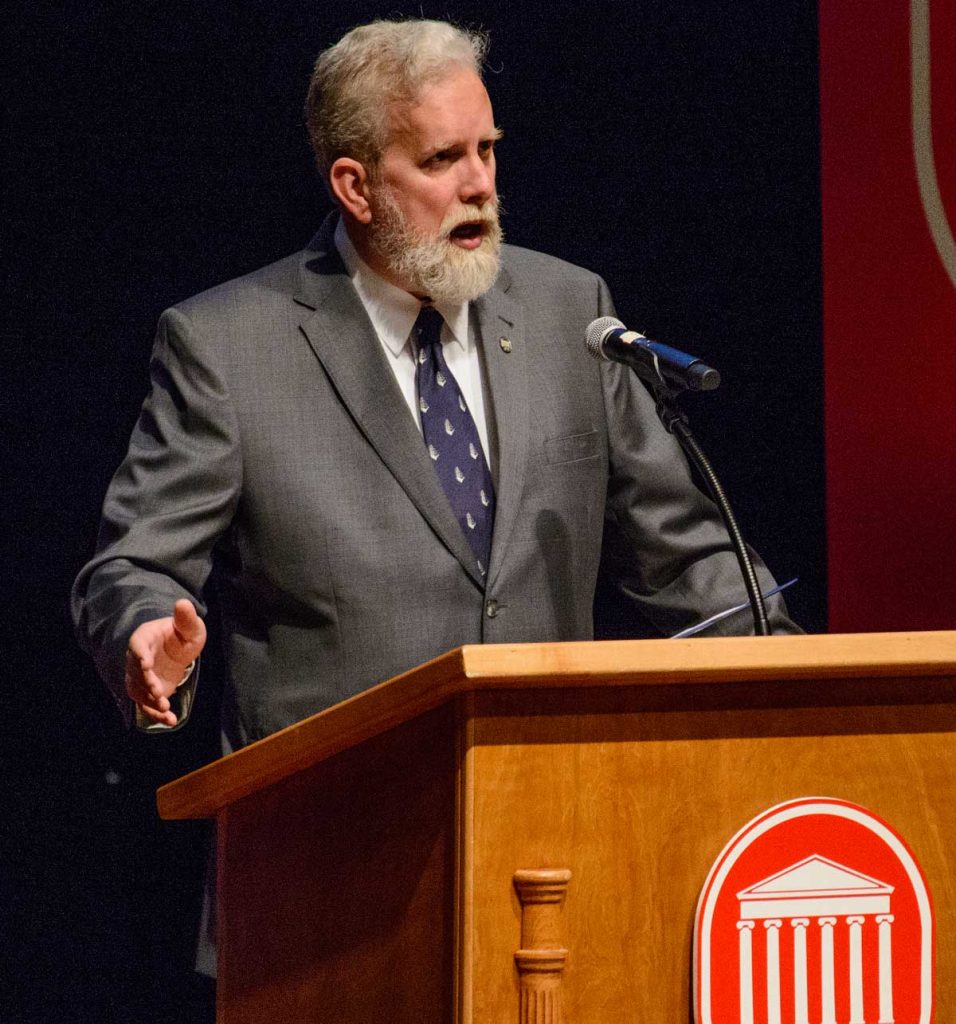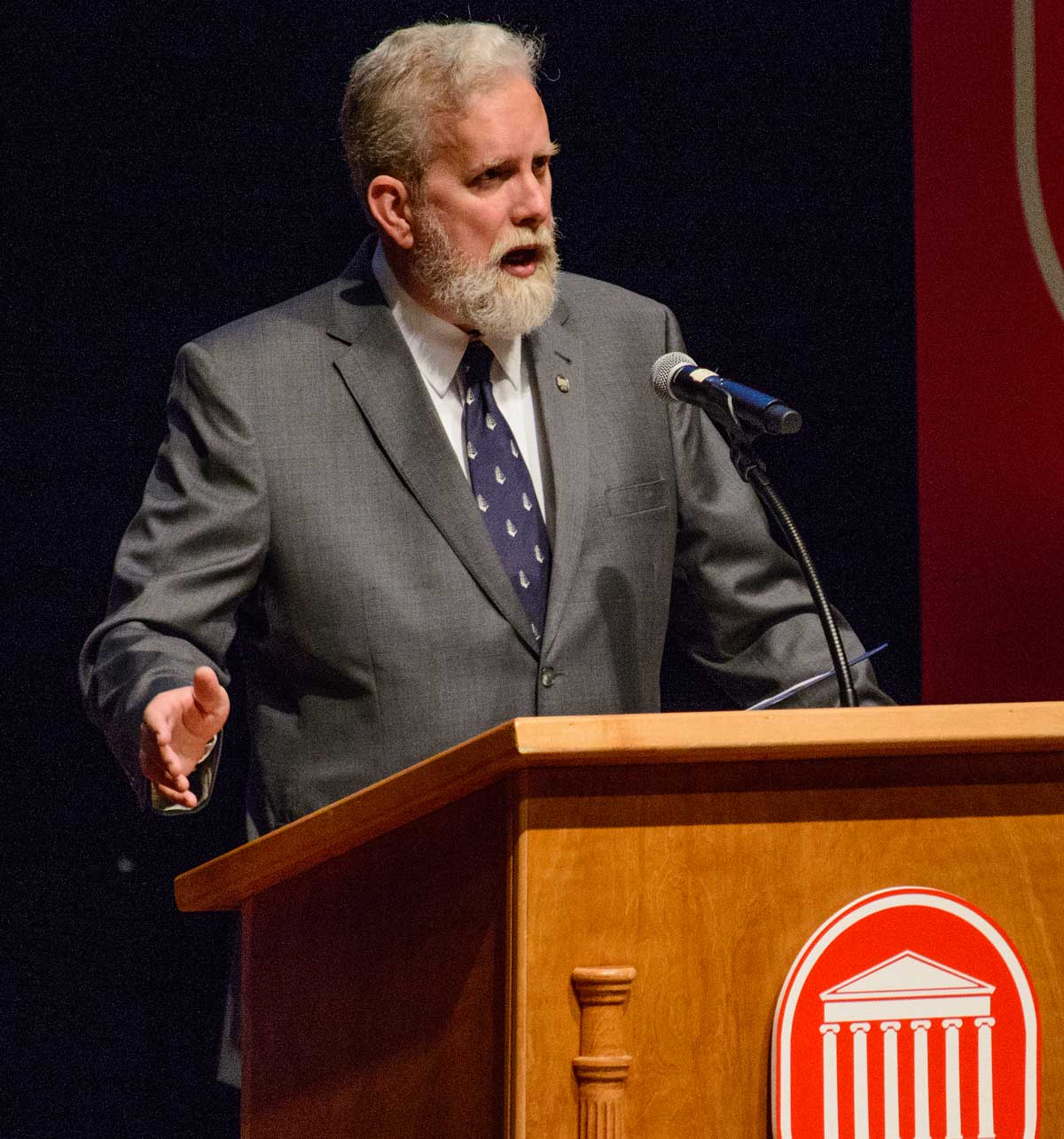
John Neff, an associate professor of history at the University of Mississippi who impacted many of his students and colleagues, died at 58 on Jan. 30. He was known for being a dedicated mentor and having brazen discussions about the truths of the Civil War and its implications on campus.
Former students and associates reflected on both his personal and professional impact at the university while also discussing his legacy.
He began working at the university in 1999 and was regarded as the “teacher’s teacher,” according to Jeffrey Watt, the Kelly Gene Cook, Sr. chair and professor of history.
“He was the best teacher among us,” Watt said. “He excelled in his teaching at every level. I mean, undergraduate, graduate, 100-level, (and) upper-division graduate teaching. He excelled at every level, and that’s very unusual.”
Neff was generous with his time and always open to help colleagues and engage with students, according to those who knew him.
Will Loveless, a senior history major, was working on his honors thesis with Neff. After visiting the Sally McDonnell Barksdale Honors College in high school, Loveless told the dean that he was interested in studying the American Civil War. When he started his freshman year at Ole Miss, Neff was appointed as his academic adviser and mentored him ever since.
“I think Dr. Neff helped me refine myself as a student,” Loveless said, “and helped me learn about myself as a student.”
Though he plans to study law after graduating, Loveless said he will take Neff’s attitude of treating everyone equally with him and apply it to his philosophy on life.
Andrew Davis, an instructor of history at the university, said Neff’s legacy lives on in the students that he taught and advised.
“When he was your adviser,” Davis said, “no matter what you did, it would be good … He was someone who’s … going to test you here and there, but you were going to get through it one way or the other. You would feel, you know, ultimately better about the project than when you started it.”
Beth Kruz is a graduate student who came to the university in 2016. She connected with Neff as another person who was heavily interested in and knowledgeable of Civil War history.
“I thought about my dissertation because our interests were so aligned,” Kruz said of Neff’s legacy. “As much as I wanted to do my dissertation for me, now I want to do it to honor him, and that will be noted when it’s completed.”
Neff established the Center for Civil War Research in 2009 to “promote a more thorough understanding of the American Civil War, its history and its scholarship, among the various constituencies of the university,” according to its website.
April Holm, an associate professor of history, worked alongside him as assistant director of the center since 2011.
“He was a man who came up with wonderful ideas,” Holm said, “and he had a great vision for what the center would be: something to kind of engage with scholarship on the Civil War, both at the local level with community, with students and then nationally (and) with scholars around the country.”
Not only does the center focus on studying Civil War monuments, but they also organize conferences, invite speakers, help fund graduate research and present a book prize.
Neff was also a part of the Chancellor’s Advisory Committee on History and Context, which was “charged with identifying and contextualizing all relevant sites on campus,” as stated on its website.
His contribution to the discussions about contextualization, including conversations about the removal of the Confederate monument in the Square, is one of his lasting impacts on campus, according to Noell Wilson, an associate professor of history and international studies and the chair of the history department.
“He was a kind of dogged researcher and really the voice of reason and mediator,” Wilson said. Neff was able to reach people of all different perspectives, but he didn’t “alienate or generate mistrust,” and he “had a very special personality (and a) temperament that was just kind of uniquely suited to kind of play that role on campus and move it forward.”
















